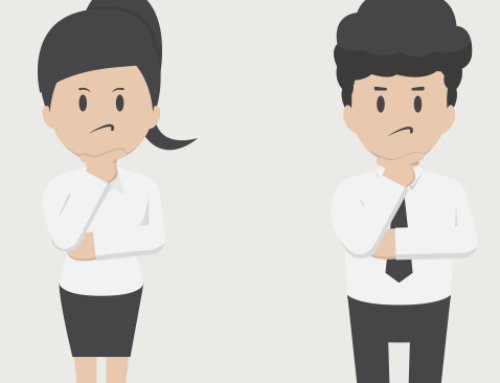How Does Bankruptcy Affect Support?
For purposes of child and spousal support, bankruptcy can be helpful for both the person declaring bankruptcy and the person receiving support. It doesn’t affect the support obligation and may make it easier for the payor to make the payments. Whether you’re the payor or the recipient, understanding what happens when one party goes bankrupt is something both parties need to know.
What is a bankruptcy, or a consumer proposal?
When you owe more than you own, you’re insolvent. If you can’t cover your expenses or pay off your debts you can either declare bankruptcy or make a consumer proposal to get out from under that debt. Sometimes, if you hold off doing it yourself, your creditors can force you into bankruptcy. If you’re smart, you’ll consider declaring bankruptcy before your creditors have the chance. A consumer proposal is a sort of “pre-bankruptcy” move in which you set out a plan for your creditors to accept part of what you owe and forget about the rest. If your creditors don’t agree to a consumer proposal you automatically end up bankrupt. We’ll use the term bankruptcy to cover both situations.
What happens when you declare bankruptcy?
Essentially, when you declare bankruptcy, a Trustee in Bankruptcy who works for your creditors takes ownership of your assets and divides them up amongst the people who you owe money to. Your creditors end up getting a fraction of what’s owed, or possibly nothing. Either way, it clears off the debt and it’s no longer owing once you’re discharged or finished with the process. Most people think this wipes out all of your debts and obligations. It doesn’t.
The Trustee also sets out a living budget of basic expenses you need in order to live and takes the rest of your income to pay off your debts. If your income barely covers those expenses, there’s not much for the Trustee to take.
If you owe support, the Trustee counts that as part of your non-discretionary expenses to ensure it continues to be paid before any money goes to your creditors.
Bankruptcy deals with your debts by using whatever assts you have to wipe them out, even when your assets won’t cover all of what you owe. It doesn’t affect your income unless you work for yourself or it’s your own company that becomes bankrupt. So for most people you end up with the same income but less debt payments.
However, once you’ve declared bankruptcy, you’re forced to live within your means. Banks and credit card companies won’t extend credit for some years. It becomes difficult to find ways to spend money you don’t have. Additionally, more and more, landlords and potential employers are checking credit scores. You may find that bankruptcy makes it challenging for you to find housing or employment in the future.
Support payments survive bankruptcy
Here’s the good news for support recipients: bankruptcy doesn’t wipe out any child or spousal support obligations. The payor who declares bankruptcy can now make the support payments without pressure to give the money to debt collectors.
Support payments continue until changed by a separate court order. Arrears continue to accumulate and earn interest if the full payment isn’t made, even during the bankruptcy process.
Once bankruptcy has been declared, the Trustee in Bankruptcy handles debts on behalf of the payor. Apart from certain living expenses and the money to pay support, the person’s income goes to the Trustee. The remaining income, plus any assets, are divided up amongst those who are owed money. The amount owing for support is considered non-discretionary and is excluded from what goes to the creditors. The payor will no longer need to pay off creditors before paying support.
In a consumer proposal, the support obligation is considered as a reduction of net income, so only money left over after the support is paid is counted towards paying off debts.
Beware of threats
Family law lawyers often meet with clients receiving support who tell them that the payor is in arrears, owes all sorts of money, and has threatened to go bankrupt if the person receiving support doesn’t agree to a reduction. It sounds serious. After all, the payor has so many debts to pay off that he or she can’t afford to pay debts and make the support payments as well. The line is something like “Cooperate by taking less support or I’ll go bankrupt and then where will you be?”
That’s nonsense. If the payor does declare bankruptcy then the financial burden is reduced and the ability to make support payments improves. The person declaring bankruptcy may lose some assets, but the cash flow will improve. So a person receiving support is best to answer the bankruptcy threat with, “Good. Go bankrupt.”
Most people don’t like the idea of declaring bankruptcy, so some try to bully their support receivers to agree to take less so they can use that money to pay their credit card and other debts. They want the support receivers to sacrifice so that they can keep their houses or continue to spend beyond their means. The odds are that a support recipient will be better off if the payor declares bankruptcy and has to adjust to a lifestyle within his or her means.
Tell the Trustee about support arrears
While bankruptcy wipes out other debts, it doesn’t wipe out support arrears owing for the past 12 months. As a result, many support recipients don’t get involved in the bankruptcy because they know it won‘t affect the support payment or wipe out any support arrears anyway. But that’s not a good idea.
As a support recipient, you want to be sure that the Trustee knows about the ongoing support obligation in order to make sure it gets counted as a non-discretionary expense. The person declaring bankruptcy will usually have told the Trustee about the support payments, but it’s in your best interest to make sure it happens.
Additionally, as a support recipient, you can be declared a preferred creditor for the amount of any support arrears that have accumulated during the 12 months before the payor filed for bankruptcy. As a preferred creditor, you get paid out of whatever money the Trustee has before other creditors. People or companies owed money for mortgages and certain types of loans may be preferred creditors, but most creditors aren’t. Money owed to preferred creditors gets paid first, which is why declaring support arrears is a good idea. That way, even if there’s only enough money to be shared by the preferred creditors to pay off part of those debts, at least you’ll get something.
Remember – any part of support arrears still unpaid isn’t wiped out by the bankruptcy. It’s still collectable once the payor is discharged from bankruptcy.
By making the claim for support arrears in the payor’s bankruptcy proceedings, you make it easier on the payor once he’s out of bankruptcy, because at least part of the arrears will have been paid off. He or she still owes whatever hasn’t been paid unless the payor gets a separate court order.
Money owed for an equalization payment isn’t protected
If you are owed an equalization payment at the end of a separation and hasn’t been paid by the time the payor goes bankrupt, then the outstanding balance becomes one of the payor’s unsecured debts. It will be paid only after the secured debts have been paid and then whatever money is available will be shared rateably with all of the other unsecured creditors. Unfortunately, that means you’re not likely to get much of the equalization paid to you.
There are judges who have increased the amount of support the payor pays to help a recipient out if they’ve lost equalization money, but that’s not a guaranteed thing.
Be careful
Bankruptcy is a complicated thing and there are lawyers who specialize in bankruptcy. There may be situations where the recipient could be hurt by a bankruptcy. Perhaps property was transferred into his or her name to avoid creditors, and the Trustee wants it back. There are instances where the bankruptcy might affect the income of the payor, so trying to avoid it might be a good idea. Perhaps the person declaring bankruptcy owns half of the home in which the recipient is living and the Trustee will want to sell that interest.
In these cases, and any other where they may be any question, it’s smart for each the payor and the recipient to get independent legal advice to see if there is a way to arrange things to cause the least amount of damage to the family.
















